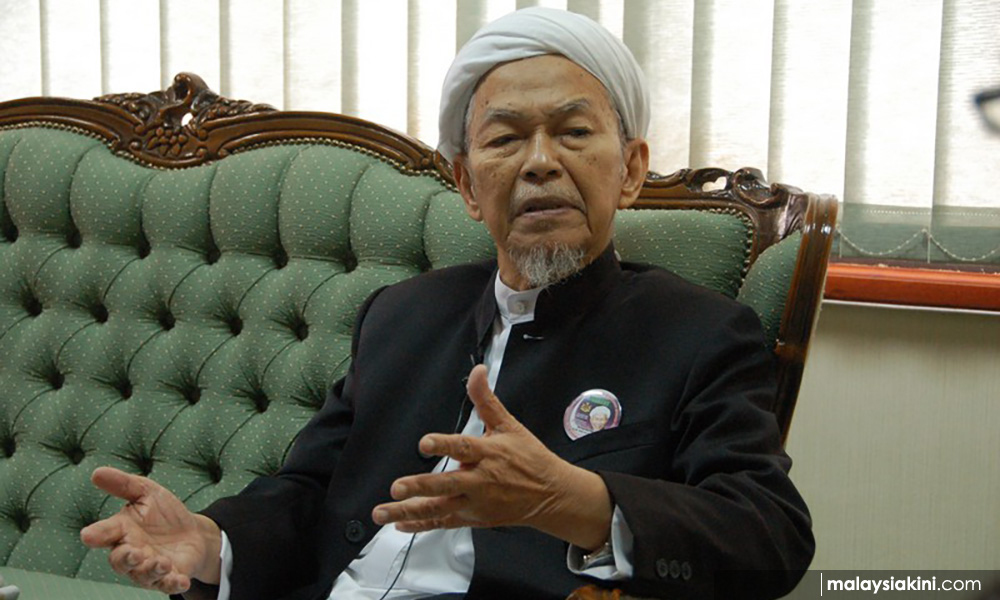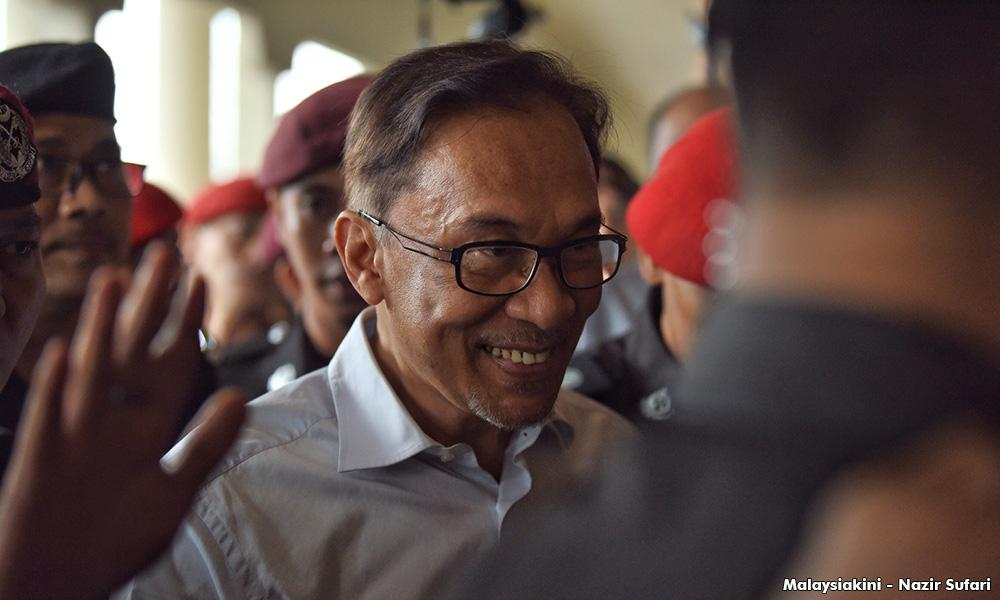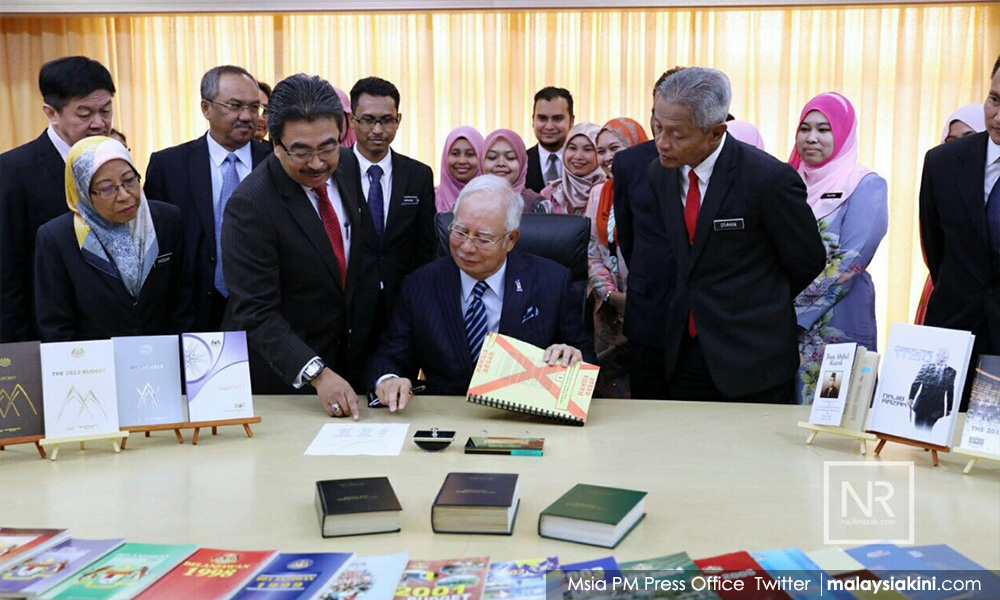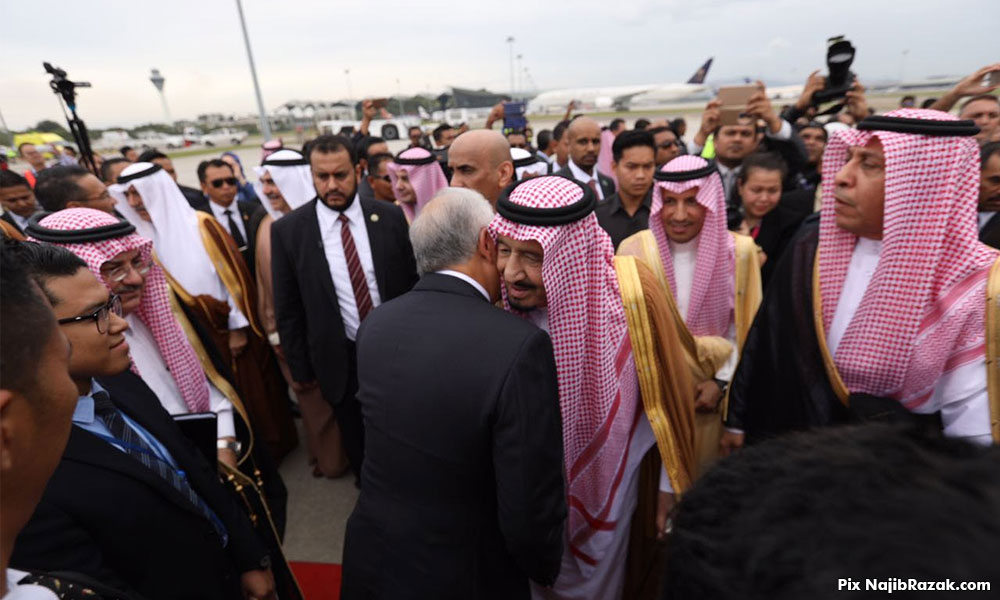COMMENT | "Amanat Hadi" is synonymous with the 1980s in Malaysian history when Muslims were split into two categories: those who supported PAS, and those who did not.
Not surprisingly, his position was so extreme, that it took a good thirty years before Abdul Hadi Awang rose to PAS president, and even then, his behaviour and rhetoric had to be constantly monitored by the late leaders Nik Abdul Aziz Nik Mat, as well as Yusof Rawa and Fadzil Noor.
Thirty years to become president of a conservative Islamic party implies that PAS itself is not extreme, and that it is a political party – I repeat, a political party – that has its checks and balances.
But the checks and balances in PAS are often based on concepts and ideas that evolved with the exigency of the political condition.
Despite being a party that subscribes to the doctrine of Ahli Sunnah Al-Jammah, or believers of the practice of Prophet Muhammad, there is actually a Dewan Ulama headed by a spiritual chief, that oversees everything else.

During the life time of Tok Guru Nik Aziz (photo), the Dewan Ulama constantly sought, and implemented, his advice; one of which was to stay away from any alliance with Umno, as the party has been known to practice a form of ethno-nationalism that privileges Malay supremacy over all else.
Hadi may not have said so openly, but by cosying up with Umno, even agreeing to keep Umno in power, Hadi knows that he has tried to transcend the previous template of the party.
Indeed, by removing Mustapha Ali as an advisor of PAS – before he was reinstated by deputy president Tuan Ibrahim Tuan Man – Hadi has shown the extent to which he is determined to preserve a corrupt Umno in office.
Naturally, Hadi would like all members of PAS to believe that he is held back by nothing but the Quran and the Hadith.
Theologically, this is a correct Islamic position to take. The phrase “La illa ha ilallah, Muhammadan rasulallah," affirms that "there is no god but Allah and Prophet Muhammad is His messenger."
But, if Hadi has never had the need nor epiphany to apologise for "Amanat Hadi" before, even when such instruction had once destroyed the lives and families of many Malay families in and out of PAS, then how sure can one be that Hadi is an Islamic leader guided by the concept of empathy and compassion?
Despite being in politics since 1946, if not earlier, one has seen the compassionate side of Mahathir at the very least. He has attended the funeral of Anwar Ibrahim's late father, even showed solidarity with Anwar Ibrahim at his legal appearances.

Furthermore, even PKR president Dr Wan Azizah Wan Ismail averred recently, and publicly, that the dismissal of her husband from the position of deputy prime minister in 1999 was not easy.
In both cases, Mahathir and Anwar were willing to let their guards down, and revealed the humble and humane side, for the greater interest of the nation and the people. The nation before self.
Even Lembah Pantai MP Nurul Izzah Anwar, whose rational tenacity I have great admiration for, confessed that the pain, while there, must be overcome for the better good of Malaysia.
Why? Well, there is nothing in Islam that condones stealing and corruption, especially grand larceny, corruption, malfeasance and abuse of power. With her remarkable holistic intelligence and political acumen, and is not too farfetched to see her occupying the pinnacle of Malaysian leadership one day.
Thus, faced between holding on to the past, and embracing the future, Mahathir, Bersatu and Pakatan Harapan, have all agreed to work together in anticipation of the 14th general election.
But Hadi, in his latest message to members of PAS, took to telling PAS that Mahathir and others in Bersatu are literally "lost," or sesat.
How can one be "lost" if one has constantly sought to overcome the past – as Mahathir did, and is still doing – while Umno has never issued any apology for a slew of corruption scandals that rock Malaysia from top to bottom, and bottom to the top ?
Surely, Hadi is either confused or blind to the reality of the state of the country. Most people, when in a hole, stop digging. Yet, Hadi kept preaching to his flock of believers in PAS that Mahathir is wrong.
That even the reintroduction of English, in science and mathematics, is a signal indication of being astray. How? 90 percent or more, of the world of knowledge is in English. Is Hadi urging Muslims to specialise in Malay alone? Or Arabic alone?
Indeed, which kind of Arabic? If one commands the Arabic in Egypt and Saudi Arabia, the opportunities do not necessarily open up, as both countries are afflicted with serious structural problems.
If one speaks Arabic that hails from Lebanon, Palestine, Jordan or Syria, the same person would be discriminated for not speaking the standard Arabic. Thus, he or she would find his employment prospect in Qatar and Gulf Cooperation Council reasonably limited.
In Islam, there is the phrase in the Quran that says, "Truly God does not want the believers to face hardship." Prophet Muhammad further prayed that he be "spared from a life of debt."

Yet, the Malaysian economy has about 82 percent of the people owing some kind of debt or loan. This is one of the highest in Asia, with the national debt of Malaysian government alone almost reaching RM685 billion.
And with multiple and avalanche of mega projects that may not necessarily be economically viable, like the ECRL, MRT etc, only God knows what the real figure is.
Is Hadi asking members of PAS to forego their economic struggle or jihad to make Malaysia economically strong again ?
To begin with, inflation and stagnant income have gripped the country. Thus, all Malaysians, in or out of PAS, must redeem the Malaysian economy as soon as possible.
Even KS Jomo, a visiting fellow at Khazanah Research Institute, and Terence Gomez of Universiti Malaya, have both warned about the dangers of foreign ownership of the Malaysian economy exceeding local ones.
Corruption, malfeasance and abuse of power, obviously, has created a systemic effect, of allowing big and small Trojan horses to break into the Malaysian economy.
Be it massive capital from China, or, illegal labour from Myanmar, Malaysia has become a broken entity, so much so that Putrajaya has to cede its land to allow Saudi Arabia to build its King Salman Centre of International Peace.
Saudi Arabia has been struggling with its own form of extremism and corruption scandals, as pointed out by the hour long BBC documentary, where our prime minister is features in the first eight minutes as a major culprit.

Najib really should sue BBC to clear his name, but of course, it is easier to expect winter in Malaysia.
If Hadi likes to ask Bersatu or anyone in Pakatan Harapan to seek "truth" then it is incumbent on Hadi to apologise to Malays and Malaysians for the rancour of "kafir mengkafir," which he first started.
Calling someone a disbeliever is a form of khurafaat or abject practice in Islam. Not only is it haram, it is practically a form of shirik (unbelief), as it is said in the Quran and affirmed by Muhammad, that only Allah shall know what "is in the heart of humankind," even if it is "as small as a seed of mustard.”
In other words, Hadi is involved in serious bidaa or improper innovation of Islam – by calling others to believe in him, and him only. The latter is a power reserves to Allah. Even on something as basic as the above, Hadi has tried to usurp the power without any sanction or approval of his own Dewan Ulama.
Despite being born in 1947, Awang Hadi became president only in 2002, when he was 55, taking over from the late Fadzil Noor who was pragmatic and moderate. Indeed, becoming a president when he was nearly 60 must have grated on his patience.
Not surprisingly, Hadi's own state legislative assembly performance in Rhu Rendang, Terengganu has been poor. The statistics are not quite dissimilar for his parliamentary seat performances in Marang, Terengganu as well.
One also must not forget that Terengganu was lost in 2004 under his leadership in the state. Perhaps it is time for history to repeat itself in Kelantan.
Rais Hussin is a Supreme Council member and Policy and Strategy Bureau head of Bersatu.
The views expressed here are those of the author/contributor and do not necessarily represent the views of Malaysiakini.

